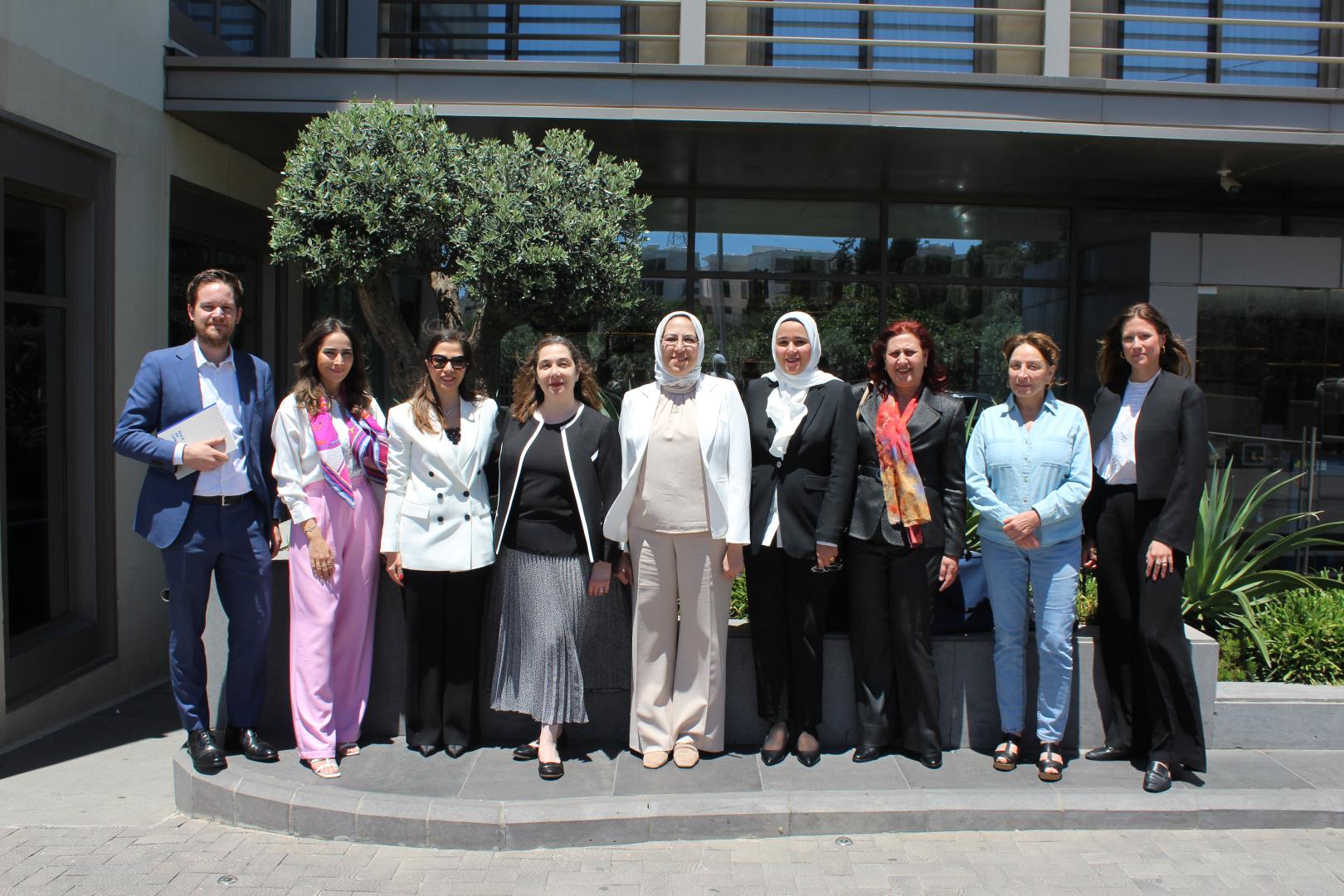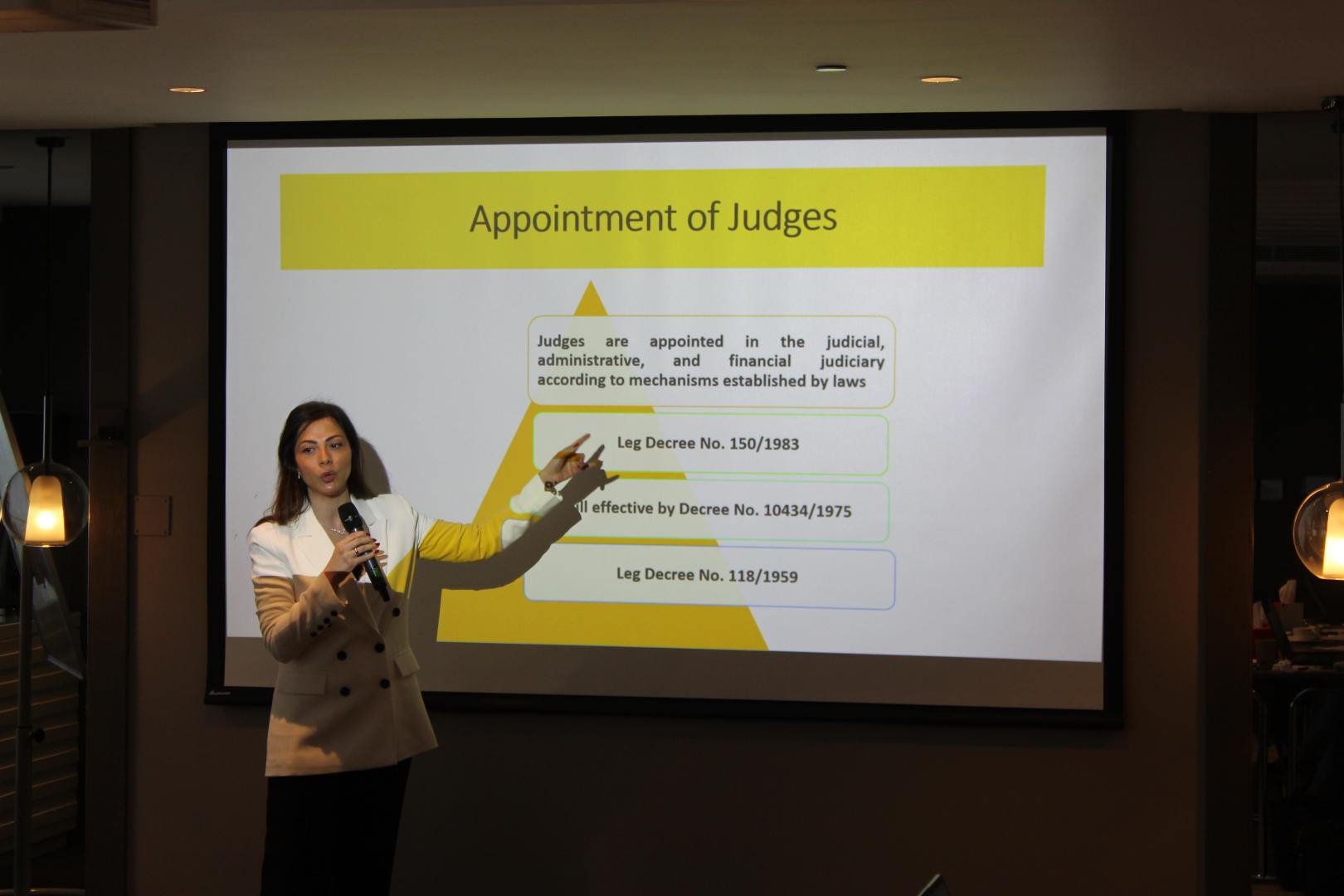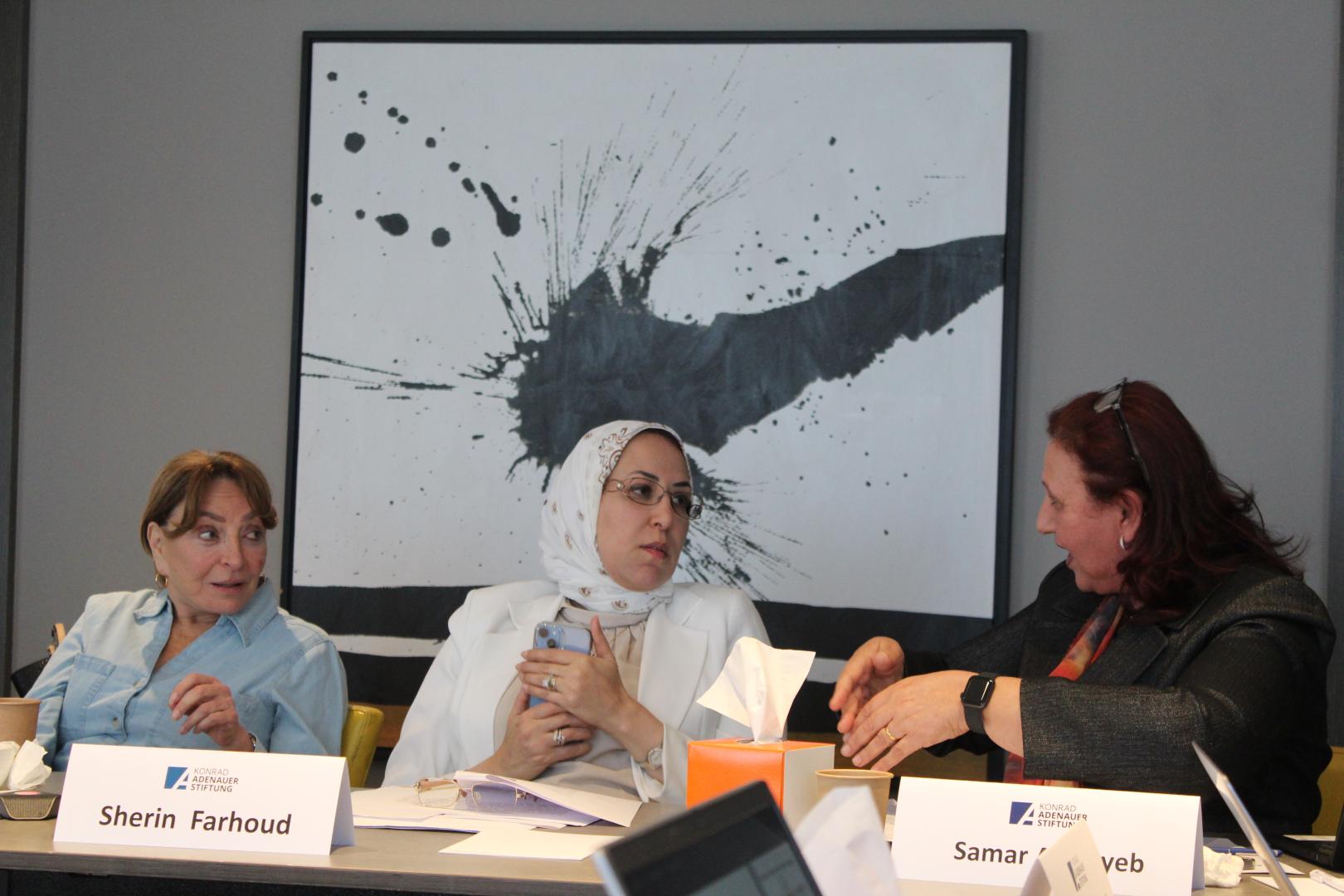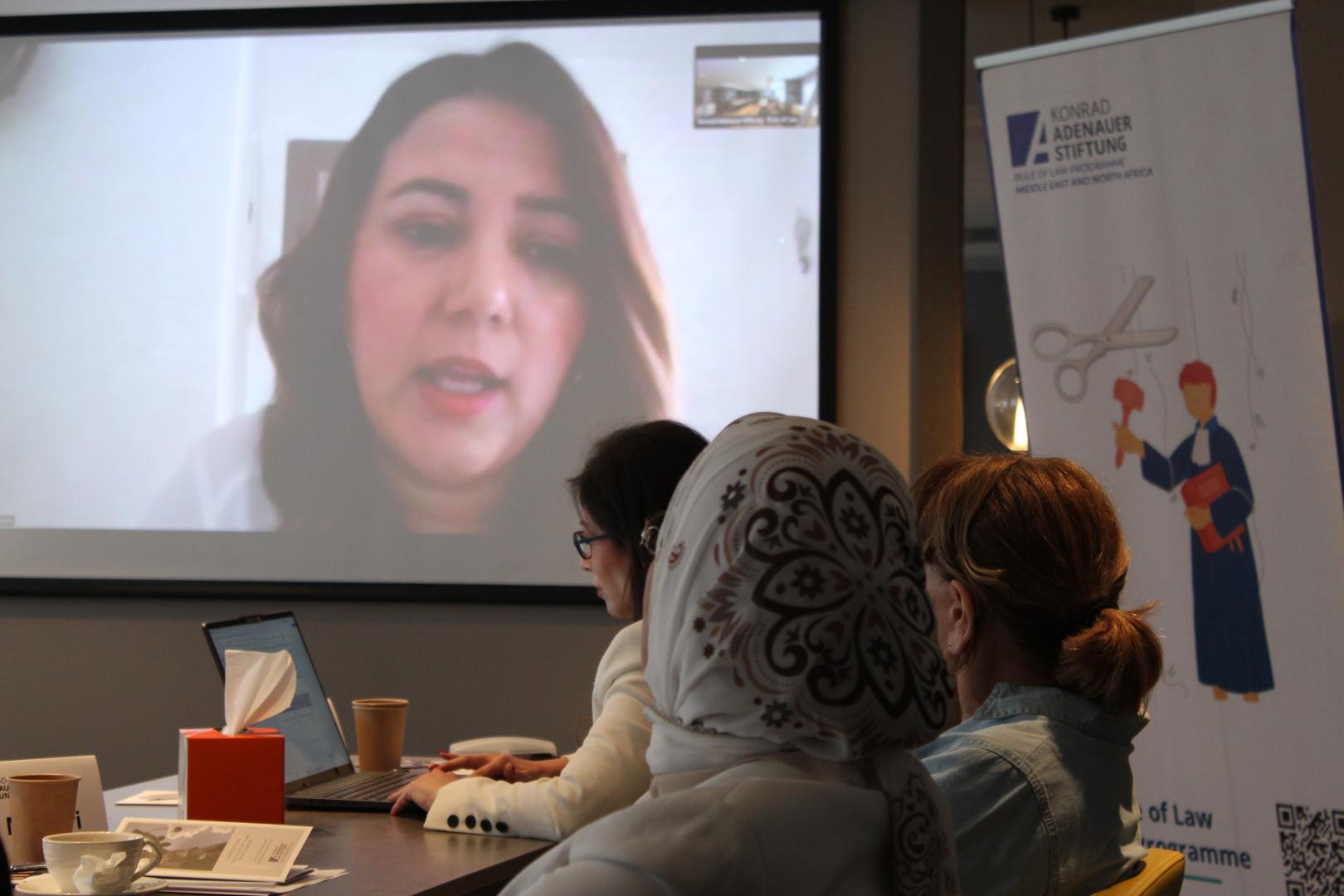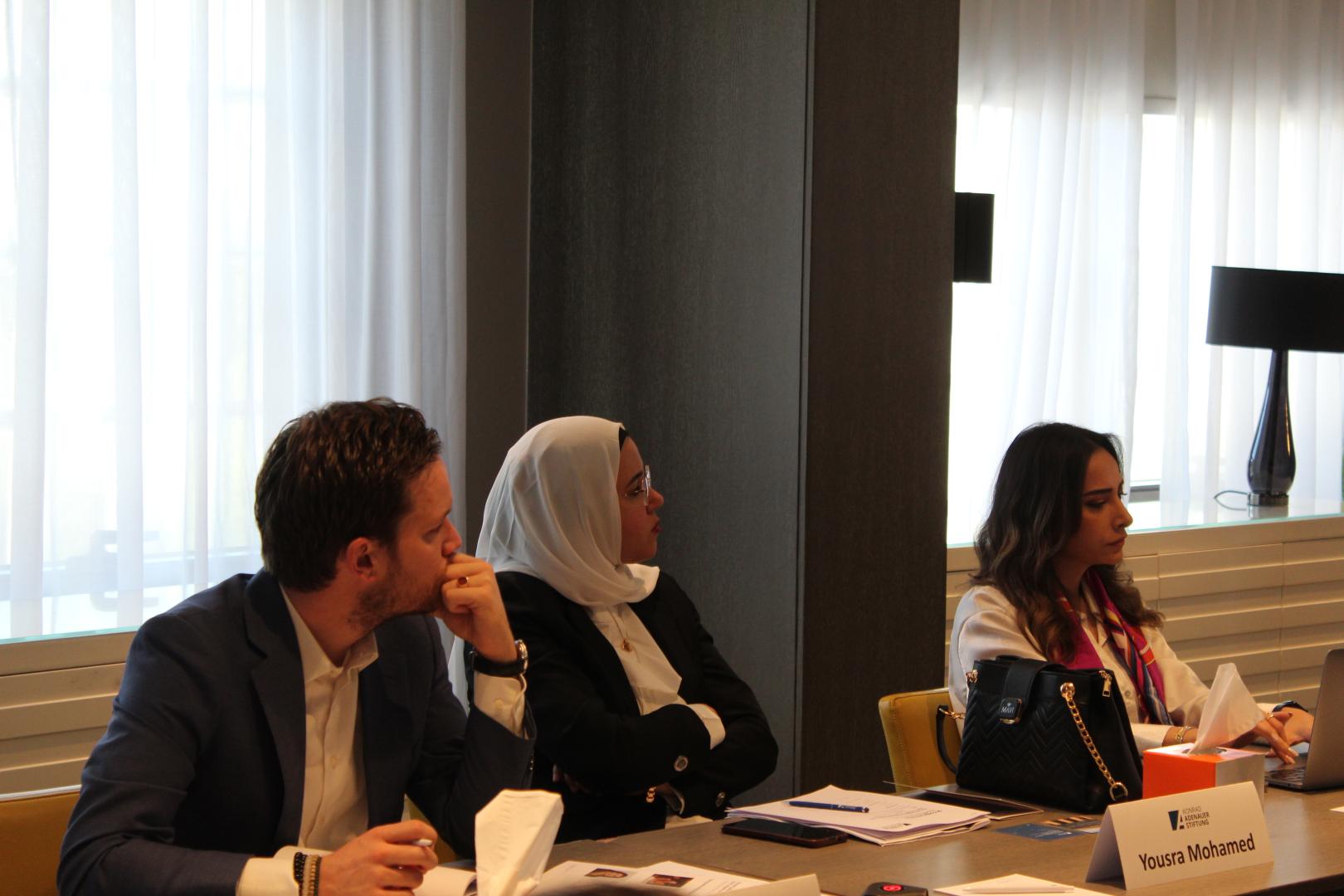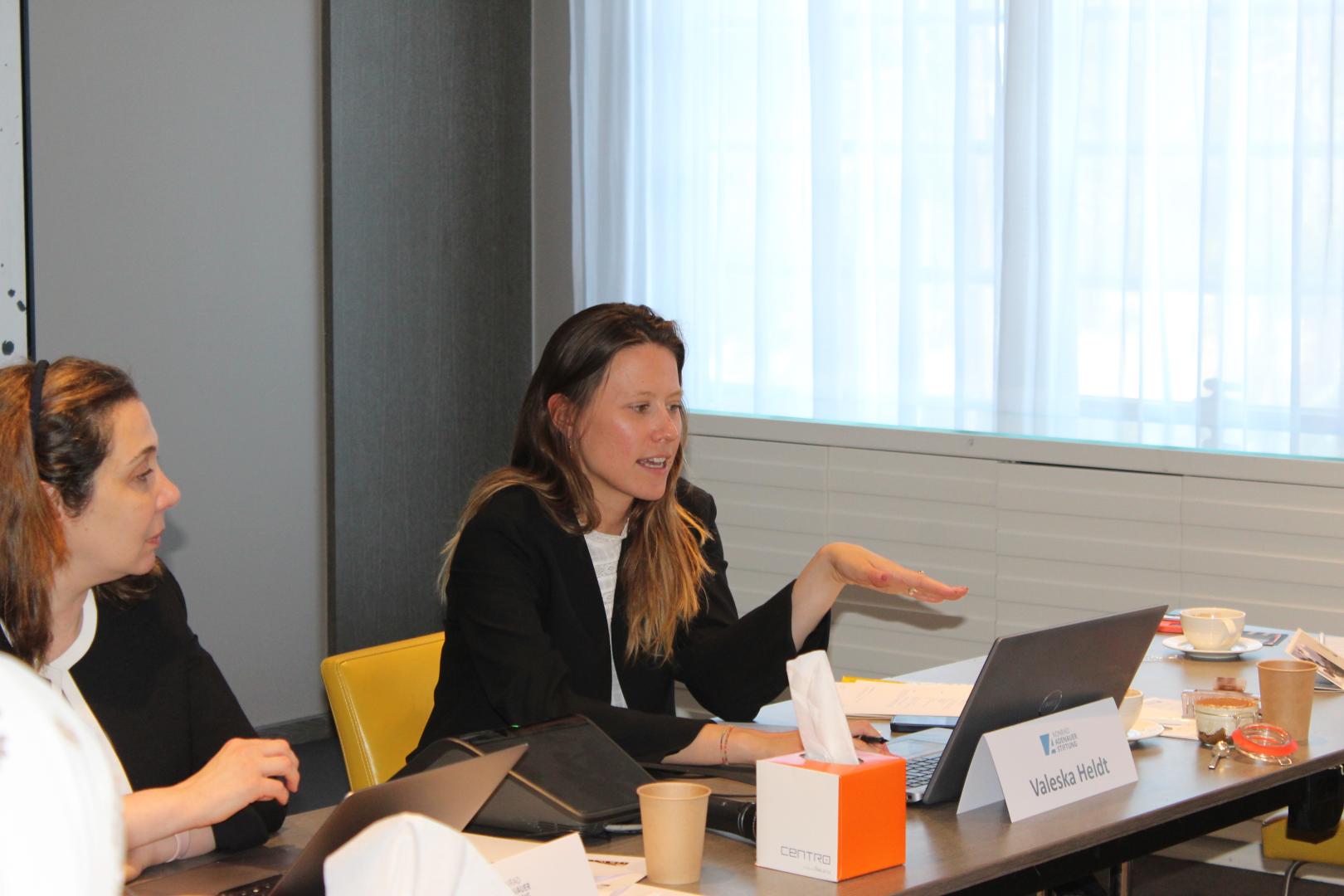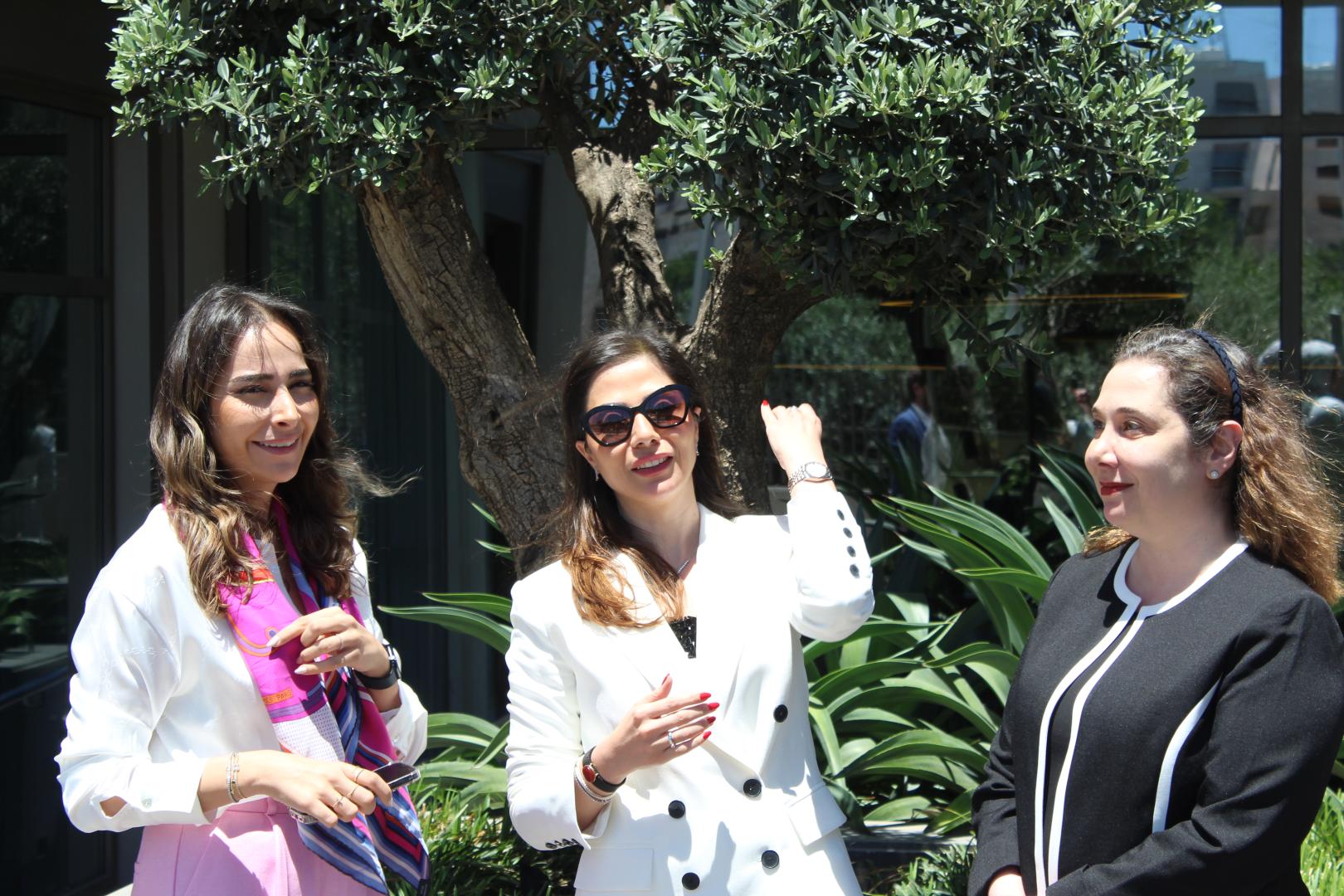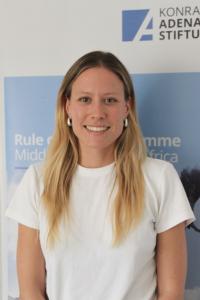Studies and data have shown that ensuring representative, gender-inclusive decision-making will help build strong institutions, and by doing so also promote, peaceful and inclusive societies (SDG 16). To achieve (representative) Justice, women have to be part of Judiciaries, especially as female judges.
In the past couple of decades, some Arab regimes have started using gender quotas in their judiciaries to increase women’s representation. Others allow women to the bench only by the specific appointment through the respective judicial authority. In others – the most prominent example of this being Lebanon – the “feminization” of the Judiciary occurred in an organic way, leading to over 50 % of females in the Lebanese Judiciary.
Ms. Rola El-Husseini (Associate Professor at Lund University, Sweden) classifies the inclusion of women in the judiciary among Arab countries into three categories: 1) ones that have allowed women in the judicial schools and therefore increased the number of women judges organically; 2) countries that have implemented a quota for women in the judiciary; 3) and ones where only a small number of women were appointed by the executive.
It remains to be shown if the descriptive representation of women (by numbers) also leads to a substantive representation of women in state institutions; meaning that they would also implement gendered perspectives on their policy- and decision-making.
The KAS Rule of Law Programme for the Middle East & North Africa hosted a closed workshop in Amman, Jordan, with female judges from the region that examined this question: do the patterns of women’s entry into the judiciary impact the outcomes of judicial practice in these countries, and if so, how?
Our participating experts from Lebanon (Category 1), Jordan/ Morocco (Category 2) and Egypt (Category 3) provided valuable insights on their own trajectories of becoming judges or counsels; on the challenges they faced specifically as women; and the ways in which they may conduct gendered “judicial activism” by at least applying a gendered perspective to the issues they face. For some, the mere fact that women have nowadays access to spaces and positions they were historically excluded from is already a huge positive step. For others, substantive female representation necessitates a proactive, constant and fearless inclusive stance; whichever gender or political affiliation the decision-maker has.
Participating judges and experts:
- Rana Akoum (Lebanon)
- Samar Alshayeb (Jordan)
- Rola El-Husseini (Lebanon/ Sweden)
- Sherin Farhoud (Egypt)
- Tatiana Karam (Lebanon)
- Yousra Kamal (Egypt)
- Mayssam Noueiri (Lebanon)
- Salima Rouhi (Morocco)
The result of the roundtable was a publication by Dr. Rola El-Husseini, which you can find on the right hand side.



